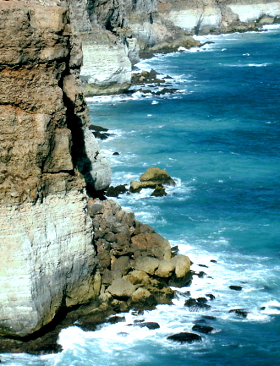Bight study finds new species
 The search for oil has led to the discovery of 400 new species in the Great Australian Bight.
The search for oil has led to the discovery of 400 new species in the Great Australian Bight.
A joint effort between BP, the South Australian Research and Development Institute (SARDI), the CSIRO, the University of Adelaide and Flinders University, has probed the Great Australian Bight's deep sea waters.
The study collected 1,267 species, 32 per cent of which were new to science.
Researcher Dr Hugh Macintosh said the survey was important for establishing baseline knowledge about the environment.
“Decisions like [oil exploration] can't be made when you don't have any information about the local environment, and it was identified that we knew nothing about the Great Australian Bight,” he told the ABC.
“[We] were given free rein to design these studies, to go out and report back to government and industry stakeholders so that we could help informed decision making.
“All we can hope for is that people make these kinds of decisions with evidence so that people can weigh [up] those when they make these decisions.”
The study focussed on areas from 200 metres to 5 kilometres beneath the water's surface.
“Ringing the coast of any landmass, you have an area called the continental shelf and it goes outwards from the beach and gets subtly deeper until it gets to about 200 metres below the surface, then that shelf drops off and the depths get deeper and deeper on a steep slope,” Dr Macintosh said.
“Eventually that peters out into what's called the abyssal plain — which is about 5 kilometres deep — so we were looking from where the shelf ends to the start of the abyssal plain.
“It's an area that we knew nothing about before this.
“We know comparatively little about the deep sea but to be able to systematically survey this area and get an idea of what the habitat is like and how it relates to other deep sea areas in Australia, is significant.”
The Australian Government has awarded a number of exploration permits in the Great Australian Bight.
Norwegian oil company Equinor has plans for an exploratory well to be sunk in late 2019, if its s environmental plan is approved.
BP has formally abandoned its exploration of the Bight, but continues to support the research program.








 Print
Print